Opinion

Despair blossomed in me; my fears of what my life and the lives of future generations could become seem to be coming true. I take my bouquet of despair to the only place big enough to embrace it: the body of Creation. I set it before the altar of the water and soil.

My school tried to purge any evidence of liberation theologies, Christian critiques of the economy, or radical solidarity with the poor, hoping to indoctrinate students with a conservative ideology. But there was an underground community at my school that helped me make a pivotal realization: By Christian college standards, Jesus would be labeled “an extreme leftist” because he embodied class solidarity with the poor, damned the rich, and imagined an alternative community. That gospel appealed to me in college; it still appeals to me today.

A MAJORITY OF faith-based organizations have only one mission—to shepherd their adherents through life. However, these congregational mechanisms of faith can also be utilized for conflict early warning and early response (EWER). For decades, peacebuilders have used EWER systems to identify and analyze conflict trends, alert to conflict risk, inform decision-making, and initiate timely responses to prevent violent conflict.
In fact, religious bodies, particularly churches, are an emerging frontline of conflict early warning and early response. Churches are highly local with deep roots in communities. They build “organic” intra- and interfaith mechanisms that can mobilize to prevent political violence at the source. Faith-based early warning systems are a valuable tool for identifying emerging signs of community violence and for controlling in-group members to quell political violence. My research shows this is as true in Sri Lanka and Nigeria as it is in the United States.
Over the years, the field of conflict early warning has evolved from formal international institutions to more community-based mechanisms capable of preventing violence using local knowledge. Early warning systems have successfully prevented political violence and mass atrocities.
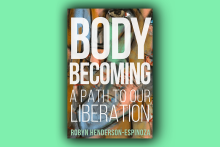
In leaving the church, earning a Ph.D., coming to terms with who I am as a NonBinary Transgender Latinx, dosing testosterone each week, deepening my antiracist awareness, and learning about embodiment, I’ve encountered a lot of change.

Amid the avalanche of rogue supreme court decisions that have come out in the past few months, there’s one that has slid under the radar: West Virginia v. EPA.

Proclaiming God’s abundance feels counterintuitive in a world filled with excruciating and growing hunger: In the United States, long-standing food deserts, racial inequities exacerbated by the COVID-19 pandemic, and a broken social safety system are all contributing to a growing crisis of hunger. Globally, at least 140 million people are currently affected by a dire food crisis; 49 million people are just one step away from famine conditions.
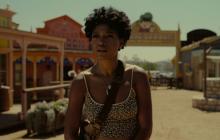
Nope, writer/director Jordan Peele’s third theatrical release, opens with a Bible verse: “I will pelt you with filth, I will treat you with contempt and make you a spectacle” (Nahum 3:6). Cut to a blood-soaked sitcom set where a chimpanzee — arms and mouth also covered in blood — wanders around before settling down and looking at the audience.

Whatever the cause of the loss, the result is uniquely painful but universally true: We’re left to pick up the pieces amid waves of grief, while those around us struggle to know what to say — a struggle that dates back to biblical times.

One hundred- and eight-degrees Fahrenheit. According to the University of Washington, that June day in 2021 was the hottest day ever recorded in the city of Seattle. And my fourth-floor apartment did not have air conditioning.

What makes a god worthy of worship? A heavy question, and probably not one you’d expect from the Marvel Cinematic Universe. But writer, director Taika Waititi’s latest film, Thor: Love and Thunder, takes aim at that very question.
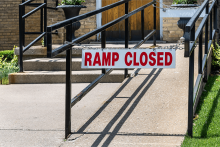
I’ll never forget my pastor’s response when I asked about putting a $130 portable ramp in the building where our church meets: “That’s not stewarding tithe well,” he announces without embarrassment. He acts as if he’s making a measured budgetary decision — like he is choosing between two beige paint colors of a similar hue. Except I am the one on eggshells.

Scripture is quoted twice in the latest season of Stranger Things, a first for the Netflix original that introduced us to the military experiments happening in the small Midwestern town of Hawkins, Eggo-loving Eleven, and the magic of Steve Harrington’s hair.

Compiling Weekly Wrap is sort of like going on a literary scavenger hunt for meaningful faith angles. And folks, there’s always a faith angle.
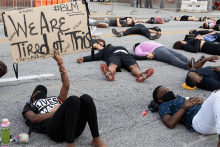
I know I’m not alone in feeling exhausted. In 2018, More In Common — a nonprofit that researches what’s driving political polarization — found that two-thirds of Americans share a series of characteristics that make them a part of what they call the “exhausted majority.” This group of people is “fed up with the polarization plaguing American government and society,” feels forgotten in the public discourse, and often has flexible views that don’t fit consistently in the Left/Right binary. Yet, they believe we can still find common ground. Sound familiar?

I was in elementary school when the first Harry Potter books were published in the United States. At the time, I was a painfully shy and awkward child; I treasured my library card and found solace in the stacks of books I carried home from our local branch. Though I was a prime target for a sensational new children’s book series, my parents — like the rest of our fundamentalist Baptist church — deemed anything about witchcraft inappropriate reading for good Christian children.
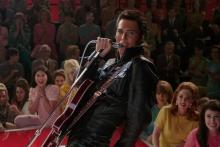
Above all else, Luhrmann displays Elvis as a man-turned-god who was exhausted trying to make peace with his paradoxes.
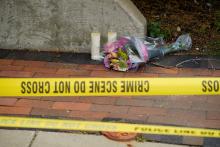
While reducing the prevalence of guns in our society is essential, I am wary of religious gun control efforts that focus primarily on federal gun legislation because laws ultimately rely on frameworks of punitive justice, criminalizing anyone who breaks the law. A holistic approach to gun violence should imagine new alternatives for a safer society — alternatives that go beyond the criminal legal system and gun control laws. To imagine these alternatives, we can turn to the lessons of the transformative justice movement, which seeks to address violence without relying on state violence, police, or prisons.

I have been ruminating on the significance of being a pro-choice Black clergywoman in a post-Roe United States. I understand how this may sound subversive despite the fact that two-thirds of American women disapprove of the Supreme Court’s decision last Friday to overturn Roe v. Wade. To some people, it’s incompatible that I could be a minister and support someone’s right to choose to have an abortion.
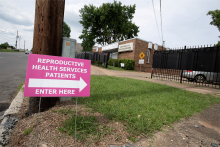
Now that federal abortion rights have been struck down by the Supreme Court in Dobbs v. Jackson, we need a new sanctuary movement that takes seriously the threat posed by the criminalization of abortion and acts to care for those seeking it.
